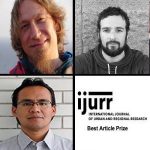Since 2013, the IJURR editorial board has been awarding an annual prize for the article that makes the most original and most significant contribution to understandings of cities and urbanization published in IJURR in the previous year. We discuss the nominations and select the winning paper at the annual meeting of the editorial board.
The 2024 IJURR Best Article prize goes to GRAY GOVERNANCE AT BORDER CHECKPOINTS: Regulating Shadow Trade at the Sino-Kazakh Border by Tak-Wing Ngo & Eva P.W. Hung.
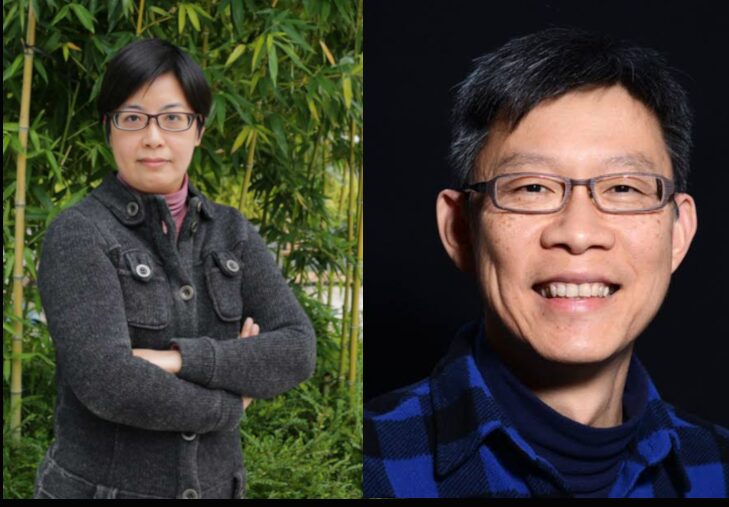
Eva Hung and Tak-Wing Ngo
This article analyzes shadow trade in the Sino-Kazakhborder, exploring the informal traders’ daily crossings of the border. Beyond ineffective border control and corruption, the case shows the mobilization of grey governance practices of various state and non-state actors within negotiations in highly organized informal structures superposed and entangled with specific rules of the formal regime. This article is free to access for three months.
Previous Winners
2023
The 2023 IJURR Best Article prize goes to BLOCOS URBANISM: Capitalism and Modularity in the Making of Contemporary Luanda by Ricardo Cardoso, Jia-Ching Chen & Henrik Ernstson.
This article draws on research conducted in Luanda, Angola to reflect on the organization of oil extraction, modalities of modernist city planning, and the proliferation of cement blocks in the making of new urban forms. This insightful article develops the concept of blocos urbanism to reveal how oil extraction off the coast of Angola becomes cement, housing, and infrastructure for the people of Luanda. Offering a fine-grained analysis of the economic, social, and spatial changes underway in the Angolan capital, this article vividly connects the materiality and spatiality of the city to seeming distant machinations in the global economy. This article is available Open Access.
The 2023 highly commended articles are:
THE POWER OF IMPENDING ZONING: Governance through Inaction in a Secondary City in Burkina Faso by Jesper Bjarnesen.
This insightful article centers resistance strategies and resident narratives of the impending rezoning and restructuring of an informal neighborhood in urban Burkina Faso. Reflecting on residents’ responses to the inaction of the local state, this piece identifies techniques of governance, state effects, and subject formation in a context where the state’s reach is partial or absent. In doing so, this contextually grounded piece highlights political dynamics relevant far beyond this secondary African city. This article is available Open Access.
ALGORITHMIC SUTURING: Platforms, Motorcycles and the ‘Last Mile’ in Urban Africa by Andrea Pollio, Liza Rose Cirolia & Jack Ong’iro Odeo
This clearly written article reveals some of the unique logistical configurations being developed to address the spatial and economic fragmentation of African cities. Highlighting three emergent forms of businesses in Nairobi that rely on motorcycle taxis to address the “last mile” problem, the authors shed new light on these emerging economies through the concept of “algorithmic suturing,” while also setting new agendas for urban research. This article is available Open Access.
2022
The 2022 IJURR Best Article prize goes to The Practice of Informality: Hustling, Anticipating and Refusing in the Postindustrial City by Tali Ziv
In this ethnographically rich, theoretically insightful article, Ziv Tali provides a usefully phenomenological perspective on urban informality. Based on three years of ethnographic fieldwork in Philadelphia, following a small group of racialized, surveilled, precariously employed men associated with an alcohol and drug treatment center, the article identifies a set of practices entailed in doing informality, including anticipating, refusing, counter-surveilling, finessing, and hustling. Contributing to longstanding inquiries into the conditions for and character of constrained agency in stratified urban spaces, this article provides an effective example of historically informed, contextually specific research that can help us think past an increasingly unhelpful analytic divide between cities in the global South and North. This article is now free to view for 3 months, from August 2023.
The 2022 Highly Commended article is Theory From Empty Land: Informal Commoning Outside/Within Economies and Ecologies of the Urban by Asa Roast
This paper by Asa Roast is a highly contextualised analysis of urban empty land in peripheral Chongqing, China, engaging with the current debates on geographies of temporalities and (planetary) urbanisation. This is an excellent example of a work that is competent in both empirics and theory-building, demonstrating what it is like to theorise from outside the global North. Asa Roast judiciously engages with the findings from his carefully crafted ethnographic fieldwork to reveal how a rapidly urbanised city like Chongqing in China exhibits undeveloped urban land (kongdi in Chinese) that becomes the site of a contested commoning that accommodates informal peri-urban agriculture and raises the questions about the meaning of the urban itself.
2021
Transformation of Markets by Michael Goldman & Devika Narayan
In this insightful and elegantly written piece, Michael Goldman and Devika Narayan document the entwining of India’s real estate markets with global financial networks. Based on interviews with key actors in India’s finance and real estate sectors and analyses of industry documents and financial data, they present finance capital as a contingent set of processes that actively constructs space and time through adaptive and speculative relationships. Shifting the focus of financialization to the global South, their insights on the strategies of financial capital have implications for cities around the world.
2020
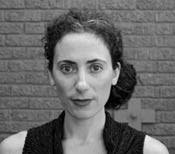
Geographies of Algorithmic Violence: Redlining the Smart City
Sara Safransky
In this timely and important piece, Sara Safransky offers much needed critique of city governments’ growing reliance on administrative data and algorithmic planning, which she demonstrates can depoliticize planning decisions and entrench racism and structural inequalities across urban neighborhoods. Highlighting the racial, infrastructural, and epistemological basis of what she terms “algorithmic violence,” this piece draws our attention to a new form of municipal redlining emerging in cities around the world.
2019

In an important expansion of our understandings of accumulation, this article analyzes how legal technologies drive the dispossession of public lands and how judicial reason depoliticizes such forms of expropriation. The theoretical and political implications of such work are far-reaching, with Kusiak drawing attention to the rule of law as a key structural mechanism of urban transformations.
2018

Özlem Öz & Mine Eder
Love thy neighbour? Not really. Using rich empirical material, Özlem Öz and Mine Eder take us to a gentrifying neighbourhood in Istanbul to show how different narratives and tensions surface when urban transformation comes to town. An excellent article to learn more and think critically about the political aspects of gentrification, right to the city, and encounters with difference that is at the heart of urban experience.
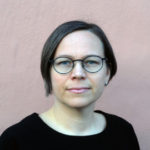
The Neoliberalization of Municipal Land Policy in Sweden
Lina Olsson
Yet another reason to re-consider some of the established myths about Sweden. In this conceptually solid and empirically rich paper, Lina Olsson offers a brilliant critique of the use of public land by Swedish local governments to extract rent from the less advantaged while increasing profits for the developers. She shows how the ideals of democracy and public interest get undermined when local governments start to act at once as planning authorities and landowner developers.
2017
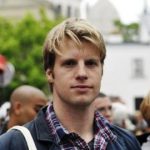
Urban Fortunes and Skeleton Cityscapes: Real Estate and Late Urbanization in Kigali and Addis Ababa
Tom Goodfellow
A pathbreaking study of property development in Africa, this paper investigates through the perspective of capital circuit in an African context and finds the impacts and consequence of speculative investment in real estate.
2016

Dana Kornberg
In this richly detailed and carefully argued paper, Dana Kornberg expands our understanding of territorial stigma by taking us inside Detroit’s regional institutions of governance. Her analysis of the water system is an important look at the racialized politics of suburban entitlement and urban crisis, relevant to many cities around the world.
Absolute Traffic: Infrastructural Aptitude in Urban Indonesia
Doreen Lee
In this highly original article Doreen Lee takes the problematic of traffic congestion, or what she terms “absolute traffic”, far beyond the confines of technocratic discourse or existing conceptual frameworks. Using Jakarta as her starting point Lee explores the phenomenon of traffic as a fundamental determinant of contemporary urban life.
Gentrification in Spain and Latin America – A Critical Dialogue
Michael Janoschka, Jorge Sequera, Luis Salinas
This innovative essay presents a state-of-the-art reflection on the international applicability of the gentrification concept in a comparative context for Spain and Latin America, drawing on a rich range of sources to reconnect with the critical political promise of earlier studies.
Alex Schafran, University of Leeds, UK
Alex Schafran offers an incisive and path-breaking account of the geographical and political dynamics of US foreclosures that combines a wealth of original data with a sophisticated analytical framework. The article is set to become a classic account of the urban effects of the financial crisis in North America.
The Primacy of Space in Politics: Bargaining Rights, Freedom and Power in an Istanbul Neighborhood
Berna Turam, Northeastern University, USA
Berna Turam presents a dazzlingly original and superbly written account of contemporary social and cultural change in Istanbul that unsettles the conceptual utility of the “Islamist-secularist axis”. The article exemplifies a new wave of innovative scholarship on space and society in modern Turkey.


